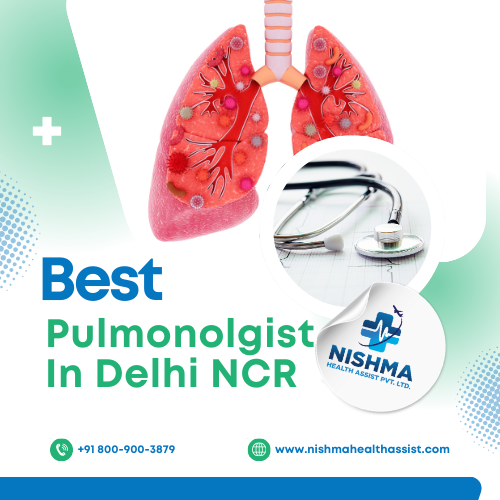What You Need to Know About Cataract Treatment Options?
Cataracts are a common eye condition that affects millions worldwide, leading to cloudy vision and often impairing the ability to perform daily activities. With advancements in medical science, cataract treatment has evolved significantly, offering various effective options. Whether you’re exploring preventive measures or planning surgery, it’s essential to understand the types of treatment available. Here’s a comprehensive look at cataract treatment options and how Nishma Health Assist can guide you in choosing the best hospital for your specific needs.
Understanding Cataracts and the Need for Treatment
Cataracts typically develop gradually, clouding the eye’s natural lens and affecting vision. They are most commonly age-related, though factors like genetics, certain medications, and lifestyle choices can increase the risk. While glasses or stronger lighting may temporarily improve sight, cataract surgery is often the only effective way to restore clear vision as the condition progresses.
Cataract treatment focuses on removing the clouded lens and replacing it with a clear, artificial intraocular lens (IOL). This surgery is one of the safest and most frequently performed procedures worldwide, with high success rates and minimal recovery time.
Exploring Cataract Treatment Options
There are various treatment options available for cataracts, each offering unique benefits:
Phacoemulsification (Phaco Surgery)
This is the most common cataract surgery, involving a small incision through which ultrasound waves break up the cataract. The fragments are then gently removed, and an IOL is inserted. Phacoemulsification is minimally invasive, allowing for quick recovery and minimal discomfort.
Extracapsular Cataract Extraction (ECCE)
ECCE involves a larger incision to remove the clouded lens. While less common than phacoemulsification, ECCE is sometimes necessary for advanced or dense cataracts that are difficult to break up with ultrasound. Patients may experience a slightly longer recovery time with this option.
Femtosecond Laser-Assisted Cataract Surgery (FLACS)
Femtosecond lasers have added precision to cataract surgery by automating steps like corneal incisions and lens fragmentation. FLACS offers increased accuracy, reduced risk of complications, and faster healing. However, it is generally more costly and may not be available at all hospitals.
Choice of Intraocular Lenses (IOLs)
IOLs are the artificial lenses placed in the eye after cataract removal. There are different types of IOLs available:
Monofocal IOLs provide clear vision at a single distance, typically for far vision.
Multifocal and Trifocal IOLs offer clear vision at multiple distances, potentially reducing dependence on glasses.
Toric IOLs correct astigmatism along with cataract treatment, improving clarity.
Each of these treatments requires personalized guidance based on individual eye health, lifestyle, and specific needs.
How Nishma Health Assist Can Help Find the Best Hospital for Cataract Treatment
Selecting the right hospital for cataract surgery is crucial to ensure a successful outcome. With so many options available, making this decision can be overwhelming. That’s where Nishma Health Assist can step in to provide valuable support.
Hospital Recommendations Based on Expertise
Nishma Health Assist helps you access a curated list of hospitals known for excellence in eye care and cataract treatment. Whether you’re seeking advanced laser technology, experienced surgeons, or post-operative care, Nishma Health Assist offers tailored suggestions to ensure you find the best facility suited to your needs.Personalized Assistance in Choosing Specialists
Finding a skilled and experienced ophthalmologist is key to a positive surgical experience. Nishma Health Assist helps connect patients with renowned specialists, guiding you towcatard experts who are known for their skill, patient satisfaction, and successful outcomes in cataract surgery.Transparent Cost Comparison and Financing Options
One of the biggest concerns with cataract treatment is cost. Nishma Health Assist provides transparent information about treatment costs at different hospitals and assists with payment plan options, so you can make an informed decision without financial stress.Convenient Appointment Scheduling and Follow-Up
Nishma Health Assist takes the hassle out of appointment scheduling, making it easy to coordinate consultations, surgery, and follow-up visits. With this seamless support, patients experience a smooth journey from diagnosis to recovery.
Conclusion
Understanding your cataract treatment options is the first step toward restoring clear vision. From phacoemulsification and femtosecond laser-assisted surgery to choosing the best IOL, each option offers unique benefits. With the guidance of Nishma Health Assist, you can confidently select the hospital and specialist that best align with your needs, ensuring an optimal experience in cataract care. By offering personalized recommendations, transparent cost comparisons, and end-to-end support, Nishma Health Assist is a valuable partner in your journey to better vision and eye health.




Comments
Post a Comment